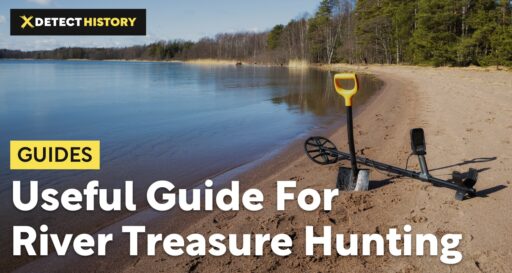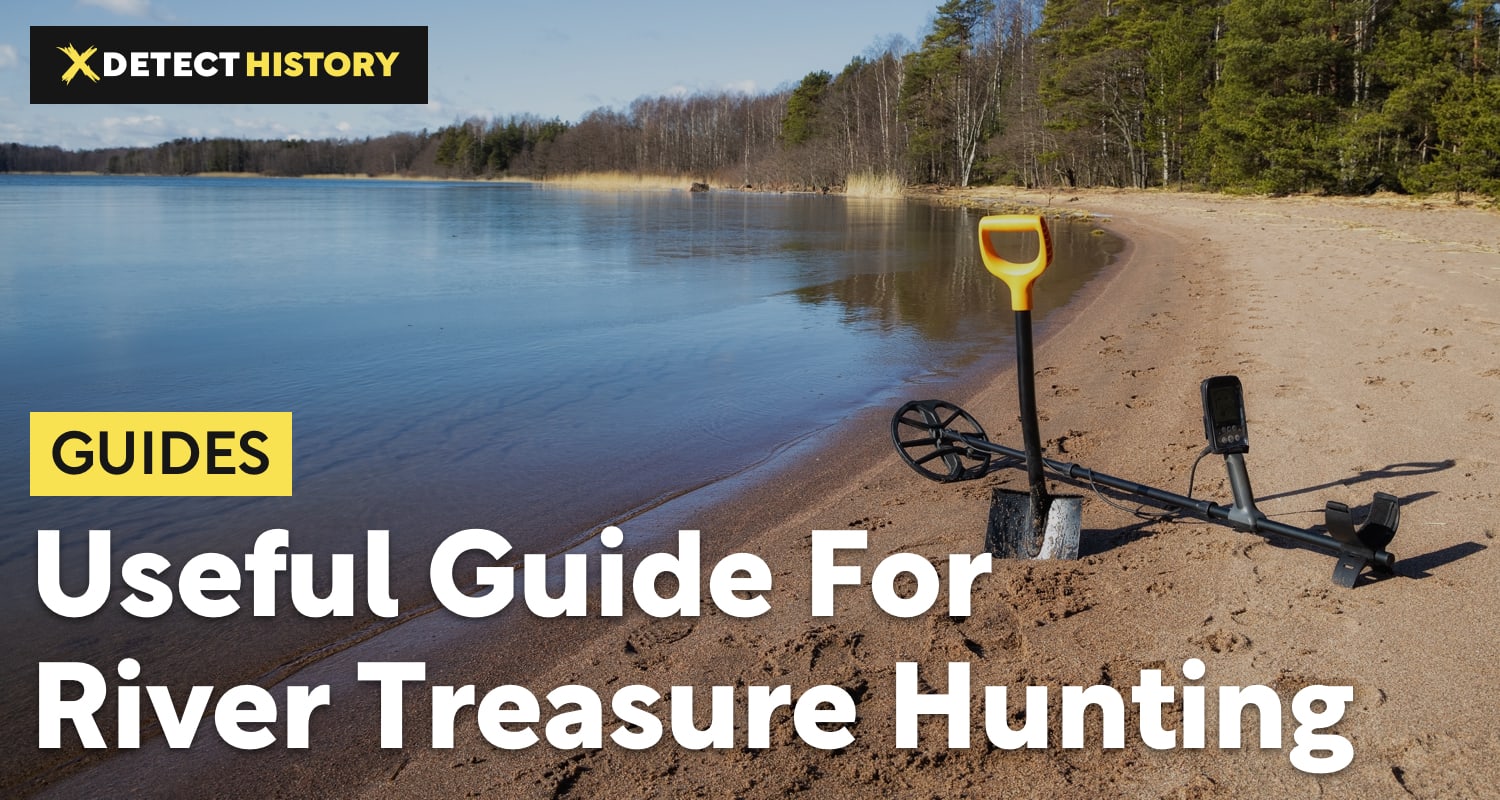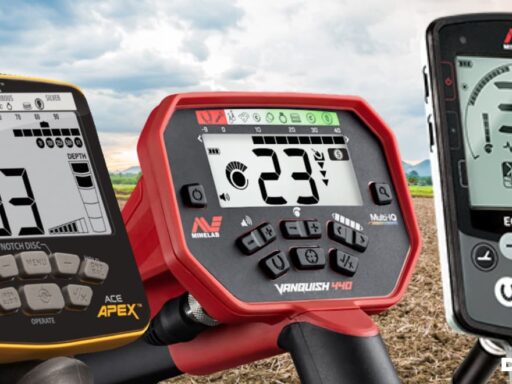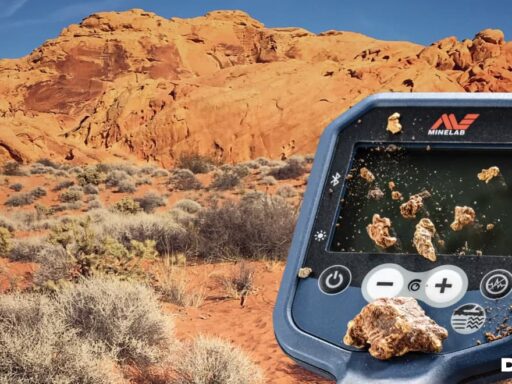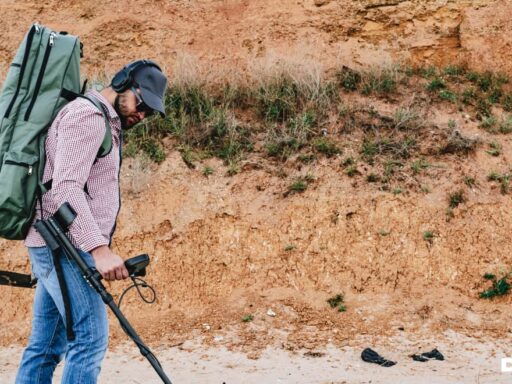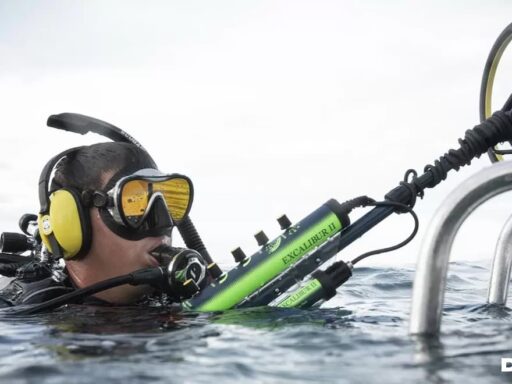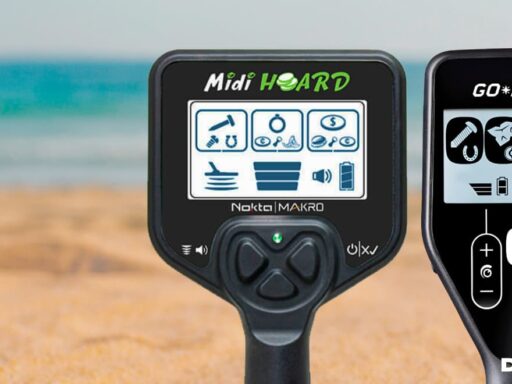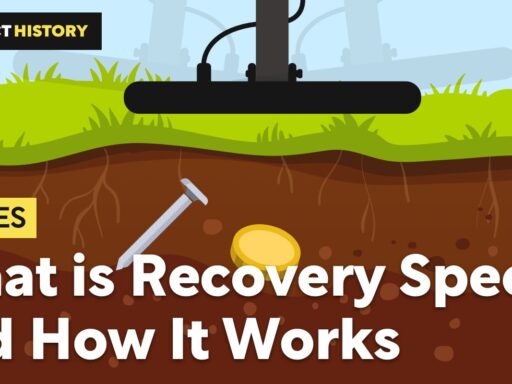Shallow water metal detecting and underwater metal detecting are two sub niches of metal detecting with hand held instruments that are very popular among medium and expert level treasure hunters. Firstly, detecting underwater requires pretty advanced skills and some practical experience, and secondly, as a rule, underwater metal detecting requires a bit more advanced metal detector (and other equipment!) than the one you can get away with for land detecting.
Due to these two factors, fewer detectorists have such immediate access to the water bodies and watercourses, which means those who can detect underwater have higher chances of spotting something curious, including even a real treasure! And river treasure hunting is definitely a good choice if you are interested in treasures.
[lwptoc]
Peculiarities of River Metal Detecting
Metal detecting at the river is characterised by several key peculiarities typical for underwater metal detecting in general – waterproof equipment is necessary, the detectorist should be more experienced, additional equipment like wireless headset is needed, etc. However, specifically rivers can turn out rather unusual locations for treasure hunting, and bring some totally unexpected finds.
The very first thing to consider is river current or, if the river is big enough, all its currents. Fast and powerful current can make detecting physically complicated and exhausing, and create additional noise that will interfere with signals interpretation. Running water can knock the equipment out from detectorist’s hand, or damage it with debris. Also, fast current means that most potentially interesting finds will be taken down the river, or accumulate in small havens along the river, so this aspect should be considered.
While rivers are freshwater courses (most of them!), meaning you do not need salt water discrimination in the metal detector, they can feature lots of vegetation that can complicate the search. Also, fresh water does not mean that the riverbed is not highly mineralized. So, river detecting has lots of peculiarities to consider.
What Items Can Be Found in Rivers
Hunting for river treasure is an exciting activity, because rivers have so many things hidden underwater. If there are beaches along the river, the search can be even more fruitful. Talking about man-made things, the treasure hunter may spot:
- old and modern jewelry
- old and modern coins
- historical relics
- all kinds of metal trash
- boat wrecks
- fishing equipment
- things like bicycles
- ammunition
- war relics (if the river runs along battlefields)
Talking about other things that can be discovered on the riverbed, these can be gold flakes or gold dust, silver deposits, or even valuable minerals. In fact, to retrieve gold from the rivers, one may even get away without a metal detector, using just a pan for gold prospecting. However, in this case it is important to keep in mind the laws on metal detecting, prospecting, and mining that are in action in every particular jurisdiction.
Is River Metal Detecting Legal in the US?
In the US, river metal detecting is legal, but there are certain nuances that should be taken into consideration.
There are several levels, so to say, of metal detecting on rivers. Most of the detecting that takes place is gold prospecting. Some detectorists hunt down other expected items, or pursue magnet fishing as a hobby. Depending on what activity is pursued, different laws and rules are applied.
On some rivers, any metal detecting is prohibited; these can be protected environments for endangered species, for example. Other rivers are closed for activities during the birds nesting season or fish spawning.
If river metal detecting is pursued for recreation, either with a metal detector or with a gold prospecting pan, some companies arrange recreational tours and camps, and no permission or license is needed. If the detecting or prospecting takes place with the purpose of profit, a license/permit is needed, and some states take a percent from the profit if the gold retrieved by the individual detectorist exceeds a certain amount established by law. And eventually, one can stake a claim for some larger scale mining, but this extends far beyond hobby prospecting both in terms of laws and equipment. Moreover, there are rules about how long one can pan, detect, or mine in the same place, and what equipment exactly is allowed.
You may check this page to be sure about the metal detecting laws of your state.
Tools for River Metal Detecting
Since shallow water and underwater metal detecting require a bit more complicated equipment, river treasure hunting gear should be considered beforehand. To choose the right tools, the following factors should be analyzed – exact location and its natural peculiarities, season, desired or expected finds, allowed tools, additional accessories, and the detectorist’s level of skill.
Waterproof Metal Detector
The very first thing to consider for shallow water search (up to 10 feet, that is) is a waterproof metal detector. A weatherproof one with only a search coil isolated from water will not fit, because you won’t be able to get into the water deeper than knee-high, and any accidental wave or splash will knock your machine out of service. Machines that can be submerged up to 3 or 10 feet are what you need. If you would like to get one of the best metal detectors in this category, check out the Minelab Equinox 800 review, and Garrett AT Max review. For beginner level detectorists, one of the best options will be the Nokta Makro Simplex metal detector.
Metal Detectors for Diving
Diving deeper than 3 feet for treasure seeking increases the chances of spotting something really valuable and outstanding, but for diving, a special class of metal detecting machines is needed. These are fewer on the market, and provide unique features that facilitate deep diving detecting. One of the perfect examples of such a metal detector is Pulse Dive by Nokta Makro. It is submersible up to 20 feet, offers high quality discrimination in salty water and on highly mineralized soils, prevents false signals and has variable signal modes due to frequency shifts. It is lightweight, supports wireless technology, has replaceable cases and additional accessories. If you would like to learn more, check out the Nokta Makro Pulse Dive review.
Sand Scoop
Metal detecting river scoop is something you will require as soon as you hit a potentially valuable item on the riverbed. Even if you search on the wet sand or in shallow water, using a scoop will be way more convenient and neat, than digging the item out with any other means. The scoop will help you to dig and sift the sand or soil at the same time. One of the best things about scoops is that they are more convenient to dig in loose sand or mud, and you will not lose even a small item. If you need a high quality sand scoop, check out our best sand scoops review.
Pinpointer
Pinpointer is the tool that allows you to identify exactly where the find is underground, when you are ready to dig or are already digging, and this tool is extremely necessary for underwater search. Pinpointers are sensitive and accurate, they will help you spot a small find, tell one small item from the other, and prevent damaging the find while digging. At the same time, pinpointers are rather sturdy and you can stick them right in the dirt and mud. You can learn more about some of the best pinpointers currently available for metal detecting. Talking specifically about complicated river metal detecting, the best options are Minelab Pro-Find 35 pinpointer and Garrett Pro Pointer AT.
Gloves
Gloves are a necessity and not a luxury when you go metal detecting. They will for sure protect your hands when digging and handling all the tools and all the dirty finds you dig out of the mud. However, handling the finds in gloves will also protect the finds from your hands, because natural acids and sweat on fingers can destroy the surface of relics or old coins.
Magnet Fishing
Magnet fishing is another cool activity that is usually pursued as an environmentally-friendly hobby rather than an activity for the sake of profit. Magnet fishing is practiced on lakes and rivers, and suggests most unexpected finds, some of them even being valuable. However, very specific skills and equally specific equipment are needed. If you are intrigued, check out the best fishing magnets review for more info.
Gold Panning
One of the most profitable and at the same time fun activities that can be pursued with different levels of experience and intensity is gold prospecting, or rather, gold panning. Many national parks and recreational areas offer gold panning camps and tours, and you won’t need much knowledge or additional equipment to wash some gold flakes out of the river mud. In fact, gold panning was the method to retrieve gold during the California Gold Rush and Gold Rush in Canada. If you develop some skills, and will choose potentially promising locations, you can be successful with gold panning!
3 Tips for River Treasure Hunting
There are three main aspects to keep in mind in order to make river treasure hunting activity successful. These are place, equipment, and skills:
- choose the place carefully. It makes sense to research the places of previous gold mining, historical events around rivers you are interested in, environmental conditions, potential seasonal limitations, and so on. Of course, success of every independent search session also partially depends on luck, but the right place increases your chances
- proper equipment is crucial for fruitful treasure hunting. Even if the treasure is there, hidden on the riverbed, you will not be able to retrieve or even spot it without relevant equipment. If you can’t afford an advanced metal detector, consider renting or borrowing it.
- think of skills you will need, and assess objectively whether you already have the minimum practical experience. You may want to share the search session with a more experienced fellow detectorist, even if it means sharing the profits. And you definitely do not want to do any deep diving alone, without a company.
